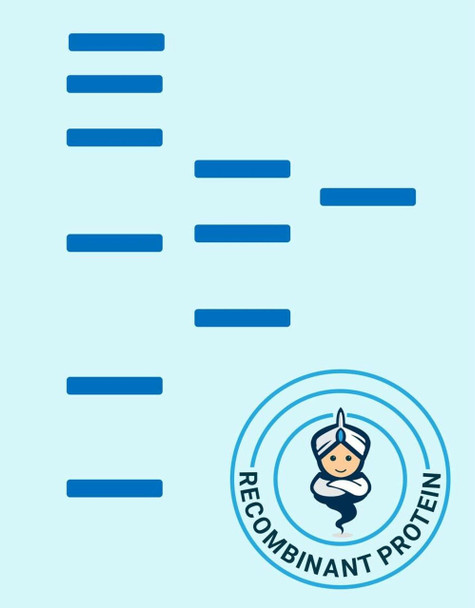| Sequence: | MSSAAGFCASRPGLLFLGLLLLPLVVAFASAEAEEDGDLQCLCVKTTSQVRPRHITSLEVIKAGPHCPTAQLIATLKNGRKICLDLQAPLYKKIIKKLLES |
| Accession: | P02776 |
| Storage: | Generally, lyophilized proteins are stable for up to 12 months when stored at -20 to -80°C. Reconstituted protein solution can be stored at 4-8°C for 2-7 days. Aliquots of reconstituted samples are stable at < -20°C for 3 months. |
| Shipping: | This product is provided as lyophilized powder which is shipped with ice packs. |
| Formulation: | Lyophilized from sterile PBS, pH 7.4 Normally 5 % - 8 % trehalose, mannitol and 0.01% Tween80 are added as protectants before lyophilization. Please refer to the specific buffer information in the printed manual. |
| Reconstitution: | Please refer to the printed manual for detailed information. |
| Background: | Human Chemokine (C-X-C motif) Ligand 4 (CXCL4) is expressed in megakaryocytes and stored in the alpha-granules of platelets. CXCL4 contains several heparin-binding sites at the C-terminal region and binds heparin with high affinity. The active CXCL4 protein is a tetramer. Human and mouse CXCL4 share 64% sequence identity. CXCL4 is chemotactic for neutrophils, fibroblasts and monocytes and plays a critical role in inflammation and wound repair. CXCL4 functions via a splice variant of the chemokine receptor CXCR3, known as CXCR3B. The major physiologic role of CXCL4 appears to be neutralization of heparin-like molecules on the endothelial surface of blood vessels, thereby inhibiting local antithrombin III activity and promoting coagulation. In contrast to other CXC chemokines, CXCL4 lacks chemotactic activity for polymorphonuclear granulocytes. |






